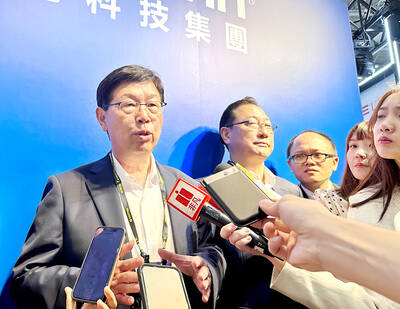Vodka and diamonds are being enlisted in the fight against climate change.
With a little ingenuity, both can be made by manipulating carbon dioxide that has been captured from the air, which means their production could actually help stem global warming. The market for such products is promising enough that a group of clean-tech incubators is on the hunt for start-ups that can create them.
New York University’s Urban Future Lab is working with Greentown Labs and Fraunhofer USA to help grow businesses that have figured out how to turn carbon dioxide into luxury goods and more. The group’s “Carbon to Value Initiative” offers start-ups a home for initial development, access to venture capital and manufacturing partners.
“We mean to jump-start the carbon technology industry,” said Pat Sapinsley, managing director of cleantech initiatives at Urban Future Lab. “We’ll use our corporate partners to scale-up quickly. It’s necessary to stay below a 2°C increase,” she said, referring to the warming limit widely believed to be necessary to prevent catastrophic climate effects.
Technology to produce goods from carbon dioxide has been around for a while, but the products themselves have gained little traction because they are more expensive than similar ones manufactured in traditional ways. The incubator group is hoping to change that by focusing on high-value items — consumers might be willing to pay a premium for luxury goods that combat climate change.
Vodka producer Air Co joined Sapinsley’s group last year. The company aims to replicate Elon Musk’s strategy with Tesla Inc, by selling a premium product that would help build scale so that they can get to larger markets such as jet fuel.
“They use renewable energy to split water to make hydrogen and combine that with CO2 to make ethanol and sell it for US$65 a liter,” Sapinsley said.
By expanding capacity on sales of pricey liquor, they can bring the costs down to compete against a US$0.40 jet fuel.
“You need to have high-value products, even diamonds, that will lead to success of carbon conversion,” Sapinsley said.
Combined, the incubators have helped hundreds of start-ups improve clean technologies and raise funds to expand, and they expect to get hundreds of applications for promising new carbontech products and services during this three-year effort.
“There is an urgency to cost-effectively capture carbon emissions and the only way for the new technology we need to get to market is through engagement with industry,” Greentown Labs chief executive officer Emily Reichert said. “We help them de-risk it to reduce cost and get it to scale.”

Taiwan Transport and Storage Corp (TTS, 台灣通運倉儲) yesterday unveiled its first electric tractor unit — manufactured by Volvo Trucks — in a ceremony in Taipei, and said the unit would soon be used to transport cement produced by Taiwan Cement Corp (TCC, 台灣水泥). Both TTS and TCC belong to TCC International Holdings Ltd (台泥國際集團). With the electric tractor unit, the Taipei-based cement firm would become the first in Taiwan to use electric vehicles to transport construction materials. TTS chairman Koo Kung-yi (辜公怡), Volvo Trucks vice president of sales and marketing Johan Selven, TCC president Roman Cheng (程耀輝) and Taikoo Motors Group

Among the rows of vibrators, rubber torsos and leather harnesses at a Chinese sex toys exhibition in Shanghai this weekend, the beginnings of an artificial intelligence (AI)-driven shift in the industry quietly pulsed. China manufactures about 70 percent of the world’s sex toys, most of it the “hardware” on display at the fair — whether that be technicolor tentacled dildos or hyper-realistic personalized silicone dolls. Yet smart toys have been rising in popularity for some time. Many major European and US brands already offer tech-enhanced products that can enable long-distance love, monitor well-being and even bring people one step closer to

RECORD-BREAKING: TSMC’s net profit last quarter beat market expectations by expanding 8.9% and it was the best first-quarter profit in the chipmaker’s history Taiwan Semiconductor Manufacturing Co (TSMC, 台積電), which counts Nvidia Corp as a key customer, yesterday said that artificial intelligence (AI) server chip revenue is set to more than double this year from last year amid rising demand. The chipmaker expects the growth momentum to continue in the next five years with an annual compound growth rate of 50 percent, TSMC chief executive officer C.C. Wei (魏哲家) told investors yesterday. By 2028, AI chips’ contribution to revenue would climb to about 20 percent from a percentage in the low teens, Wei said. “Almost all the AI innovators are working with TSMC to address the

FUTURE PLANS: Although the electric vehicle market is getting more competitive, Hon Hai would stick to its goal of seizing a 5 percent share globally, Young Liu said Hon Hai Precision Industry Co (鴻海精密), a major iPhone assembler and supplier of artificial intelligence (AI) servers powered by Nvidia Corp’s chips, yesterday said it has introduced a rotating chief executive structure as part of the company’s efforts to cultivate future leaders and to enhance corporate governance. The 50-year-old contract electronics maker reported sizable revenue of NT$6.16 trillion (US$189.67 billion) last year. Hon Hai, also known as Foxconn Technology Group (富士康科技集團), has been under the control of one man almost since its inception. A rotating CEO system is a rarity among Taiwanese businesses. Hon Hai has given leaders of the company’s six